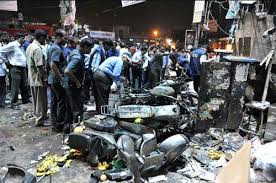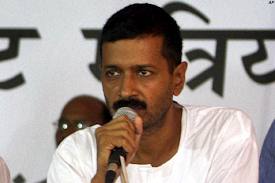A trial run on Thursday failed to show any real enthusiasm

Image: NDTV
Delhi: The capital city of India, Delhi has been caught amidst a rough debate in the last month over the Delhi Government’s decision to implement an odd-even number plate rule on cars in the metropolitian to detox the city that is wearing away under the layers of pollution. The rule states that the for the first fifteen days of January 2016, odd-numbered cars will drive on odd-number days and even-numbered cars on even-number days, leaving Sundays, where all cars are free to take to the streets. However, a test run on Thursday did not indicate a positive response.
Hundreds of volunteers were conspicuous in their absence in the exercise, which was to be held at nearly 200 points across the city between 9 and 11 AM. Although the rule exempts women, certain government officials, CNG cars, two-wheelers and vehicles in a state of emergency, it has not been accepted widely. Moreover, almost 40 officers to be part of the test are on mass leave, demonstrating against colleagues who refused to ‘sign off’ on the AAP’s decisions. In a country where traffic regulations are regularly profaned, critics have warned that the implementation of the rule will be hard because there are simple ways in ease availability to work around the rule, such as changing the number platesand/or buying new cars.
A violation of the rule is to be rewarded with a fine of Rs. 2,000. Although the Chief Justice of India has been exempted from the rule, TS Thakur has agreed to follow it. The US Embassy has also agreed to it. Meanwhile, Chief Minister of Delhi, Arvind Kejriwal has repeatedly emphasized that efficient execution of the rule will aid the reduction in air pollution substantially— the air quality in Delhi is abominably, at least 10 times worse than the average recommended level by the World Health Organization (WHO). Tweeted Yogendra Yadav, formerly a member of the AAP and now a critic, “Odd-Even scheme should be given a fair chance, despite design and implementation flaws. We owe it to ourselves and future generations.”
Delhi hosts a record 8.5 million cars currently. while at least 1,400 are added to the fleet daily. To compensate for the added pressure on public transport in the coming fortnight starting Friday, the Delhi government has roped in 3,000 private buses to keep the city moving; school buses have also been brought in and most schools have been advised to stay closed until January 15th. The most polluted city out of 1,600 surveyed cities, Delhi has a long way to go until the smog can be cleared away. Yet, this could be a major stepping stone with cumulative efforts.
Source: BBC









